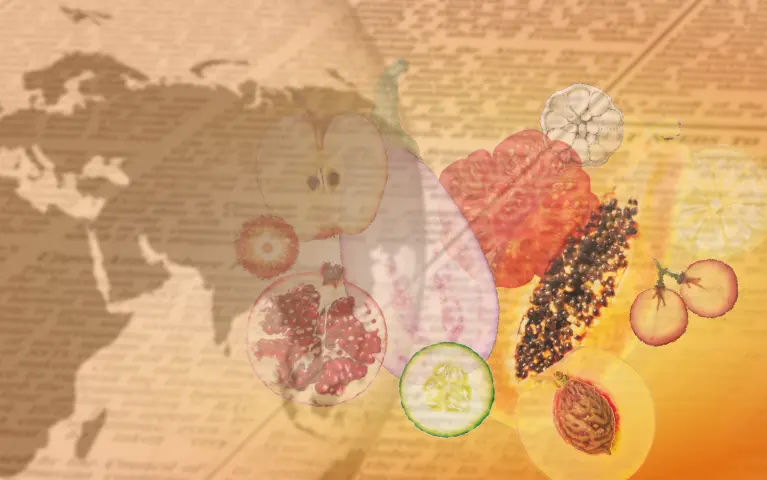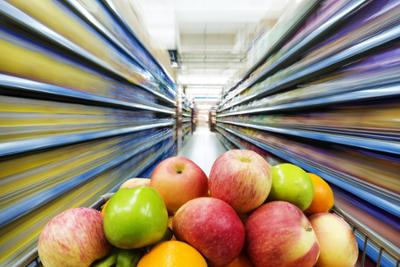

Fruit and vegetable logistics: Demand for freshness and frequency drives groupage
The preservation of product freshness throughout the entire chain is reaffirmed as the cornerstone of fruit and vegetable transport and logistics operations. In addition, more frequent deliveries and greater efficiency, environmental sustainability and digitalization are now required. We analyze these vectors and gather the vision of some major operators.
Herminia Martínez
The preservation of product freshness throughout the supply chain, with a treatment adapted to each category, is reaffirmed as the cornerstone of fruit and vegetable transport and logistics operations. This need and the requirement for more frequent deliveries and less stocking are especially favoring the development of groupage. In addition, greater loading capacity, internationalization and integration of services, efficiency, environmental sustainability and digitalization are now in demand. These vectors are behind the numerous large-scale acquisitions of horticultural traffic companies carried out in the last three years by groups such as Lineage, Logista, A.T. La Espada, Ontime and Olano.
Temperature-controlled product logistics operates in a market that, in recent years, has been demanding more frequent deliveries, fewer stocks, greater capillarity, more extensive services and greater efficiency, environmental sustainability and digitalization. These vectors have led to the rise of groupage and an investment trend for the expansion, modernization and geographical extension of corporate structures (plants and fleets), which tend to move closer to the points of origin (in Europe and North Africa) and destination. At the same time, in a context of higher costs and business competitiveness, a race has begun to optimize operations - through the elimination of empty kilometers, business collaborations, etc. - in order to generate savings and synergies. In addition, the logistics sector is immersed in a process of technological adaptation, with the aim of improving service and communication with the customer in relation to shipment location, temperature control, document management, etc.
In the fruit and vegetable service, these general conditions of refrigerated logistics are compounded by the greater demand for product freshness in supply chains that are generally long for the national sector, given Spain's role as a producer and eminent exporter. “Keeping fruit extraordinarily fresh, regardless of its origin, is not easy. Every misstep, from improper packaging to temperature fluctuations, can take its toll. That's where cold chain logistics come into play. Each product requires specific care. For example, berries and bananas require storage environments with very different temperatures and humidity. In order to meet these requirements, innovation is essential,” says Edwin Wentink, Vice President Business Development Europe at Lineage Group.
Salvesen Logística agrees: “Investment in technological innovation and sustainability will be crucial to remain competitive in this essential sector. In addition, fruit and vegetable customers are looking for intermodal solutions that combine speed and sustainability, as well as flexibility to adapt to fluctuations in demand.”
“The fruit and vegetable transport and logistics market has a very high level of quality and offers significant development opportunities, particularly due to the need to adapt to the new environmental regulatory framework and climate change. We are convinced that the focus must be on maintaining the freshness of the product, so that the quality is the maximum within its shelf life, and on finding the maximum precision in the integrated logistics process, i.e. achieving cost optimization and efficiency in meeting customer requirements,” say Brivio & Vigano's managers.
Seasonality, volatility and now less outsourcing
In addition, operators involved in the logistics management of fruit and vegetables must adapt to its seasonality and volatility, this derived from the oscillations in volume of the different fruit and vegetable campaigns, fuel price increases, delayed payments and coordinates such as the lack of drivers. In any case, for the national transport sector, in general, the diesel price subsidy -applied between April 2022 and December 2023- and the introduction, in the Royal Decree-Law of March 2022, of the clause for the revision of transport tariffs according to the evolution of fuel prices, have provided an oxygen valve in terms of margins.
The atomization of the business fabric and the subcontracting of vehicles are two other characteristic features of the national transport sector and of fruit and vegetable logistics, in particular. But both vectors have begun to change. In fact, traffic companies now seem to be leaning more towards their own fleet, which allows them to have a stable loading capacity and a better implementation of their information and tracking software and technology. Thus, for example, Primafrio and Transportes J. Carrión -the first and third largest operators of fruit and vegetable traffic by road, according to Alimarket Logística data- have 2,800 and 1,550 trucks of their own and zero and 50 contracted units, respectively.
Lineage, AT La Espada and Logista, towards integrated operators
The growing size of producers and distributors, competitiveness, the demand for international and intermodal logistics and the objective of some large operators to offer a more extensive and comprehensive service -from the field to capillary distribution- have led to a significant trend of business concentration in the national fruit and vegetable transport and logistics sector in recent years. As a result, the industry has become more international in Spain, in terms of ownership and strategic approaches.
Thus, the U.S. investor Apollo and the Avior and Blantyre funds acquired Primafrio and A.T. La Espada, respectively. The North American Lineage acquired the Murcian company Transportes Agustín Fuentes (now called Lineage Spain Transportation), after buying Frigoríficos de Navarra (now Lineage Milagro). For its part, Logista strengthened its position in fruit and vegetable traffic and “closed the door-to-door logistics circle” with its entry into the land and sea transport group El Mosca, which it acquired 100% last July. This incorporation has allowed important synergies, since “Logista Freight can add the fruit and vegetable customers of the Murcian company to fill its trucks going to Europe and El Mosca's trucks can load tobacco back to Spain”.
The entry of the Avior and Blantyre funds in A. T. La Espada opened the door to the purchase by the latter of five transport companies, two of them - the Spanish Autransa and the German NKS Logistics - acquired this year. Meanwhile, Apollo's backing has enabled Primafrio to strengthen its infrastructure and incorporate two cross-docking plants in Spain and one in Germany. “We consolidate fruit and vegetables in all our centers: in Murcia, Vitoria, Girona, Huelva, Madrid, Valencia and Belfort (Germany),” company sources explain.
The sector leader exemplifies the sector policy of investing in groupage warehouses, in which many other companies focused on fruit and vegetable services also participate. Thus, Transportes J. Carrión “already enjoys a strategic positioning in all production areas and close to the border to consolidate at origin and en route”.
Less stock, more cross-docking
In fact, the split loading of fruit and vegetable products has developed particularly in recent years, due to the demand for more frequent deliveries and less stocking. In fact, “this sector always requires to give the maximum and an extreme tension”, Brivio points out.
“El Mosca only carries out transport for the fruit and vegetable sector. The warehousing service is a one-off service for us. We continue to confirm our customers' preference for lower stock levels, so groupage continues to be favored over full load. Working with break bulk enables fruit and vegetable growers to dispense with their own warehouses. In addition, groupage links easily with capillary delivery to the stores,” he explains.
Salvesen Logística and DHL carry out fruit and vegetable groupage through their Freshline and Grupag divisions, respectively. Freshline “operates mostly in LTL/pallet, starting from one pallet” and Grupag “moves more than 1 M pallets per year in groupage”.
Groupage for distribution chains (Consum, Carrefour, Alcampo, etc.) is the core business of Valencia-based Servicom ('Servi*com'), which “carries out customized studies adapted to the retail sector”. For its part, Delgo Operador Logístico stands out for its dedication to the delivery of fruit and vegetables to retailers' stores (Lidl, etc.). “We do not take care of groupage. This is done by the client (on their platforms) and Delgo transports the goods to their stores,” he explains.
Integral solutions are gaining ground
In addition to full-truckload and groupage transport, Salvesen carries out “order picking for final points of sale, both in stock and in tight flow without stock, as well as quality control and other value-added operations, such as bagging and weighing”.
In fact, “customers increasingly require more integrated solutions that cover the entire supply chain, from procurement to transportation and logistics, with special emphasis on time optimization and shrinkage reduction. The most in-demand logistics tasks include the preparation of orders based on daily demand and real-time traceability to guarantee product freshness,” Primafrío points out.
“The demand for warehousing and logistics services has been on a clear upward trend for a couple of years now,” they point out at Brivio, which already stands out for taking on integral logistics outsourcing, including ‘loading in the field, storage, order management and delivery of the final product for all formats and in the temperature ranges stipulated for each product family’.






